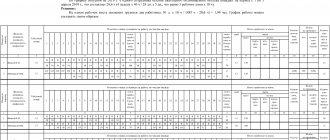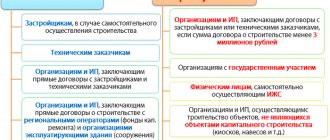An economist is a specialist who in an organization takes part in the development of a financial system, control of its implementation, formation, analysis of management and periodic reporting. The tasks of this employee include research, forecasting and support of budgetary and economic operations at the enterprise. All these responsibilities are included in the job description of an economist in the planning department. Let's consider it further in more detail.
Economist's job
The profession of “economist” is a fairly broad concept that includes a lot of positions. This includes accountants, analysts, auditors, and management positions. An economist's education opens doors to many holdings and corporations with highly paid positions, and budget-funded organizations also cannot do without these specialists. The work of an economist includes many subtleties and requires deep knowledge. People with higher education are most in demand, preferably completing a master's or postgraduate degree. The higher the qualifications of a specialist and the more experience, the better place of work awaits him.
At the workplace, an economist performs several important functions: planning financial activities for a period, analyzing economic indicators, forecasting performance results, supporting financial and business operations, preparing reports, keeping records, and much more. Each specific organization sets individual goals for its employees and ways to achieve them.
Main responsibilities
The job description of an economist in the economic planning department provides for the following tasks:
- Carrying out work aimed at increasing the profitability and efficiency of the enterprise's production activities, the quality of manufactured products, achieving high final results, subject to the optimal use of financial, labor and material resources.
- Preparation of initial information for the development of projects to increase sales volume and increase profitability.
- Carrying out calculations on financial, labor and material costs necessary for the production and sale of manufactured products, development of a new range, advanced technologies and equipment.
- Determining the economic efficiency of organizing work and production processes, introducing machines and operations, inventions and rationalization proposals.
- Carrying out an economic analysis of the economic activities of the company and structural divisions.
- Development of measures to increase profitability, productivity, competitiveness of products, reduce costs of production and sales of goods, eliminate losses, identify opportunities for additional production of products.
Features of the work of an economist in the public sector
Budgetary organizations differ in many ways from commercial ones. The chart of accounts of the balance sheet used in transactions and some unified forms of documents also differ. In addition, the receipt of funds, their expenditure and reporting for them are also taken into account in a completely different way. But, oddly enough, the job responsibilities of an economist at a budgetary institution are not far removed from the responsibilities of employees of trading companies. Yes, the economist will use different calculation formulas, postings and reporting documentation in his work, but its essence will not change fundamentally. His responsibilities still include analysis, calculation and support of the organization’s activities.
Job description of an economist at a budgetary institution
Free legal advice: All of Russia Contents An economist is a specialist who, in an organization, takes part in the development of a financial system, monitoring its implementation, generation, analysis of management and periodic reporting.
The tasks of this employee include research, forecasting and support of budgetary and economic operations at the enterprise. All these responsibilities are included in the job description of an economist in the planning department. Let's consider it further in more detail.
The job description of an economist provides for certain requirements for the professional training of a specialist. Depending on this, the corresponding categories are established:
- 1 cat. also provided for persons with higher education (in this specialty). Such an employee has at least 3 years of experience in the position of Category 2 economist.
- 2 cat. involves higher professional education. The second requirement is to have at least 3 years of experience working as an economist or in another engineering and technical position, replaced by a specialist with a higher education qualification.
A person with a military education (specialty) without experience is appointed as a specialist without a category. A citizen with secondary vocational education and experience as a Category 1 technician can also be appointed to the position of economist.
at least 3 years or in other positions that are filled by specialists with Wed.
vocational education, at least 5 years.
The appointment or dismissal of an employee is carried out by the head of the organization on the recommendation of the head of the unit under whose subordination he comes.
Guide to drawing up instructions for economists of enterprises and budgetary institutions
› › Job descriptions are needed in order to streamline labor relations.
The same applies to employees in the financial sector. There are only a few sections in this document dedicated to:
- General provisions regarding the position.
- The procedure for occupying a position and releasing it, subordinating to management.
- Experience and skills requirements.
- Types of rights and responsibilities.
- List with functional responsibilities.
Contents Job descriptions become tools that help with a clear definition of the scope of work responsibilities for each employee.
Employees are not responsible if, for example, a claim is made against them due to the poor quality of the work performed. But if this function or responsibility was not spelled out in the instructions themselves. Thanks to job descriptions, it is easier to understand where exactly mistakes are being made. There are other functions performed by the document.
- Cross-functional coordination improves.
- Cases of duplication of functions after the introduction of documents are reduced.
- The ability to organize competent interaction between employees. It becomes easier to achieve the goals set for the company.
- The ability to give a reasoned refusal when a candidate is hired at work.
- It becomes possible to build an entire system for assessing employee performance.
- A motivation system is formed, based on achieved indicators.
How, follow the link and find out. For
Education, categories and experience
There are universities and academies in different cities of the country that prepare students directly for public service. A prominent representative is RANEPA under the President of the Russian Federation. The educational program of such educational institutions includes subjects that explain the intricacies of work in budgetary organizations. But in fact, to get into such a job, it is not at all necessary to graduate from a special institute. It is enough to get an education as an economist.
In government organizations, there is a practice of assigning categories to specialists. The job responsibilities of an economist at a budgetary institution depend on it. It is assigned depending on the level of education and work experience.
- A specialist without categories is a university graduate without work experience or a specialist with secondary vocational education and work experience in this field for at least three years. A specialist with secondary specialized education in other engineering and technical fields can obtain a position as an economist without a category in a budgetary institution if his experience is more than five years.
- The second category is given to a specialist with a higher education and work experience in the field of economics or in other engineering and technical fields in a position held by a specialist with a higher education for at least three years.
- The first category is a specialist with higher education and experience as an economist of the second category for at least three years.
Job description of an economist at a budgetary institution
.
An economist is a specialist who in an organization takes part in the development of a financial system, control of its implementation, formation, analysis of management and periodic reporting.
The tasks of this employee include research, forecasting and support of budgetary and economic operations at the enterprise. All these responsibilities are included in the job description of an economist in the planning department.
Let's consider it further in more detail.
The job description of an economist provides for certain requirements for the professional training of a specialist.
Depending on this, the corresponding categories are established:
- 2 cat. involves higher professional education. The second requirement is to have at least 3 years of experience working as an economist or in another engineering and technical position, replaced by a specialist with a higher education qualification.
- 1 cat. also provided for persons with higher education (in this specialty). Such an employee has at least 3 years of experience as an economist, category 2.
A person with a military education (specialty) without experience is appointed as a specialist without a category.
A citizen with secondary vocational education and experience as a Category 1 technician can also be appointed to the position of economist.
at least 3 years or in other positions that are filled by specialists with Wed.
Knowledge required for work
The job responsibilities of an economist at a budgetary institution require the specialist holding this position to have a certain set of knowledge and skills. The required minimum intellectual luggage includes knowledge of the following aspects:
- regulatory documents, government acts, laws, teaching aids related to the field of work;
- methods of economic and financial planning;
- the procedure and methods for developing a financial and economic work plan for the required period of time;
- methods for analyzing performance indicators of the organization as a whole and its divisions;
- methods for forecasting income and expenses of future periods;
- development of business plans;
- planning, accounting and reporting documentation;
- determination of economic returns and effects from the introduction of innovations;
- local regulatory documents of the organization.
Exercising control
The job description of a leading economist, in addition to the responsibilities listed above, also includes supervisory activities. This is usually done by the leading employee or his authorized representative. The list of tasks includes various non-routine calculations in various areas and monitoring the implementation of certain settlement operations. Thus, an economist may be responsible for analyzing the indicators recorded in the company, drawing up contracts, and even signing agreements for the supply of raw materials or necessary spare parts for production. At the same time, the specialist fully controls these processes and is appointed responsible for their execution, including delivery times, quantity of raw materials, their compliance with specified parameters, etc.
Responsibilities of an official
The job responsibilities of an economist at a budgetary educational, healthcare or cultural institution may vary slightly depending on the place of work, but in general the following list can be presented:
- collection and registration of initial indicators about the economic work of the organization;
- accounting support, implementation of economic activities;
- calculations for various areas of the organization’s work;
- planning financial activities in the current and subsequent periods;
- development of saving modes;
- planning the existing budget and future income;
- tariffs for employees;
- tracking expenses, report on budget use;
- calculation of budget payments, appropriations and other amounts provided for in the work of this budget organization;
- analysis of activity, its optimization based on the results of the analysis;
- communications with higher structures;
- control over the fulfillment of contractual obligations of the parties;
- preparation of periodic reports;
- conducting procurement in a budget organization;
- generation, storage and provision of access to archives of documentation and reports.
Additionally
Depending on the specifics of his professional activity, an employee must understand the organization of work and management, and production technologies. A labor economist uses this knowledge in his work. The job description of such a specialist includes tasks for the development and optimization of personnel and production management systems.
To implement them, a specialist should know the basics of technical engineering, production technologies, and management methods. The organization of statistical and operational accounting, computational work, and reporting is carried out at the enterprise by an accountant-economist. The job description of such a specialist involves his work with materials for signing contracts. In this regard, he should know the rules for preparing the relevant documentation. In addition, he must understand the procedure and timing of reporting.
Employee rights and responsibilities
The job responsibilities of an economist at a budgetary healthcare institution, educational institutions and other state and municipal services imply seriousness and increased responsibility of the work. People applying for government services and organizations must strictly follow instructions and minimize errors and other human factors.
For failure to fulfill their obligations to the state and society, they may be subject to fines, sanctions, reprimand, dismissal or even conviction. But the rights of people involved in government agencies are broader than those of employees of commercial organizations. Thus, they are entitled to longer vacations, quarterly and annual bonuses are paid, and a social package is provided in full. Additional bonuses for working for the state can include free or discounted travel on public transport, annual trips to a sanatorium for minor children and other positive aspects.
What rights does an economist have?
So, above we have already examined the job responsibilities of a labor and wage economist, so now it’s time to talk about his rights. Their list includes:
- Know about all orders, regulations and actions of superiors in one way or another related to the work of a specialist.
- Make rationalization proposals to improve both your own activities and the activities of the entire company.
- Provide information to managers or responsible persons about any deficiencies and deficiencies found.
- Suggest options for correcting any deficiencies found.
- Receive help or assistance from other company employees in your professional activities.
- Demand from the heads of departments, workshops, sections the necessary documentation and reporting on the work done (independently or through the boss).
- Involve employees and managers in the implementation of tasks and established strategies.
In a word, this employee has an expanded set of rights and is a kind of connecting link between the head of the company and the direct performers.
A competent economist is the backbone of any enterprise.
Educational institutions, healthcare and culture
The job responsibilities of an economist at a budgetary cultural institution, health care, and educational structures imply a full report on the work done, clearly established deadlines for submitting analytical reports, and calculated prices for services and products, if any, down to the penny. Most of the funds in such organizations come from the state budget, that is, from payments from taxpayers. This means that all data provided by the economist must be clean, transparent in understanding and open to all identified users.
The job responsibilities of an economist at a budgetary procurement institution, for example, include organizing specialized tenders that are open to any user who can visit the site and be interested in this information. In this case, procurement must be carried out in accordance with all the rules specified in the legislation.
Responsibility
The job description of an economist includes a section in which the specialist is warned about the likelihood of sanctions being applied to him for certain violations. In particular, it provides for prosecution for unlawful actions committed by an employee in the course of his professional activities. In this case, according to the current legislation, the specialist may be punished under the Civil and Administrative, and in some cases, the Criminal Code. An employee may be held accountable for improper performance of his duties, which include the job description of an economist. The punishment in this case is established in accordance with the provisions of the Labor Code. The specialist is also responsible for causing property damage resulting from his activities. Punishment for such acts is established within the framework of current legislation.
What to write in your resume
The job responsibilities of an economist at a budgetary institution must be described in full for a resume. The more a job seeker can do, the more types of work he has encountered in the field of budgetary economics, the more valuable he is. The search for candidates for budgetary organizations usually involves a lot of competition for positions, if salary expectations are met, of course. Therefore, in order to beat all competitors, you need to describe your merits and skills as colorfully as possible. However, it should be taken into account that deception in this matter is very easy to reveal at the very first stage of the interview, so only information that corresponds to reality should be described.
Basic structure and sample instructions for an economist
A typical example of a job description should contain the following data:
- The word "Approved" is at the top, in the right corner. After this word comes the position of the manager and the time when the document was approved. The manager's signature is placed in the column that is intended specifically for this. Just below is the word “Agreed”. After it there is a list of employees who themselves developed the job description. Or their bosses sign.
- The next place to fill is the middle. Here you should definitely start with the name of the document itself. And the position of economist is indicated, with an addition in the form of a category or other designation of the area of responsibility.
- Basic information begins in the first section. It is associated with general provisions for a particular profession. Here they write about the requirements related to the age of the applicant for the position, work experience, and education. A separate list includes documentation that the employee must be familiar with. This may include other information: on hiring and dismissal, on direct management, on the location of this staffing unit in the general structure of the schedule.
- Let's move on to the second section. It contains the rights and responsibilities of the person holding a certain position. If there are sufficiently voluminous job responsibilities, they are separated into a separate block. It is necessary to describe not only general concepts for the profession, but also specific ones intended specifically for a given employee.
- Liability measures are described in the next section. This section simply helps clarify the employee's responsibilities in relation to his personal responsibilities in the workplace.
There is no legally unified form for this document.
A sample job description for an economist in budgetary institutions can be downloaded here.
Employers can add other sections if necessary.
Economists in budgetary institutions
The main thing is that the job description corresponds to the general form established for the document. In such organizations, there is a high probability that the economist will have to engage in budget planning along with budgeting.
You can see the job description for the executive director at the link.
This means that additional job functions appear like:
- Preparation and conduct of government procurement that meets the requirements of federal law.
- Tracking spending of funds from the budget.
- Accounting for limits on budget obligations and appropriations.
- Budget planning.
About official rights and responsibilities
The economist has the following responsibilities:
- Preparation of reports within strictly specified deadlines.
- Carrying out accounting of concluded contracts and economic indicators.
- Drawing up forecasts for production development.
- Monitoring deadlines for fulfilling obligations.
- Preparation of papers, without which it is impossible to conclude contracts.
- Analysis of how effectively production labor is organized.
- Analytical activities for all business transactions.
- Calculations of enterprise costs and resource use.
- Preparation of business plans to increase profits.
- Work related to increasing profitability and profitability at minimal cost.
Responsibilities of an economist.
You will find complete information about IP printing here.
Rights are closely related to responsibilities. These include:
- Creating comfortable working conditions, without which it is impossible to perform job duties.
- Participation in all discussions regarding the organization of labor with production.
- Requiring from employees and subordinates the documentation necessary for work.
- Familiarization with any information that is required to solve problems.









